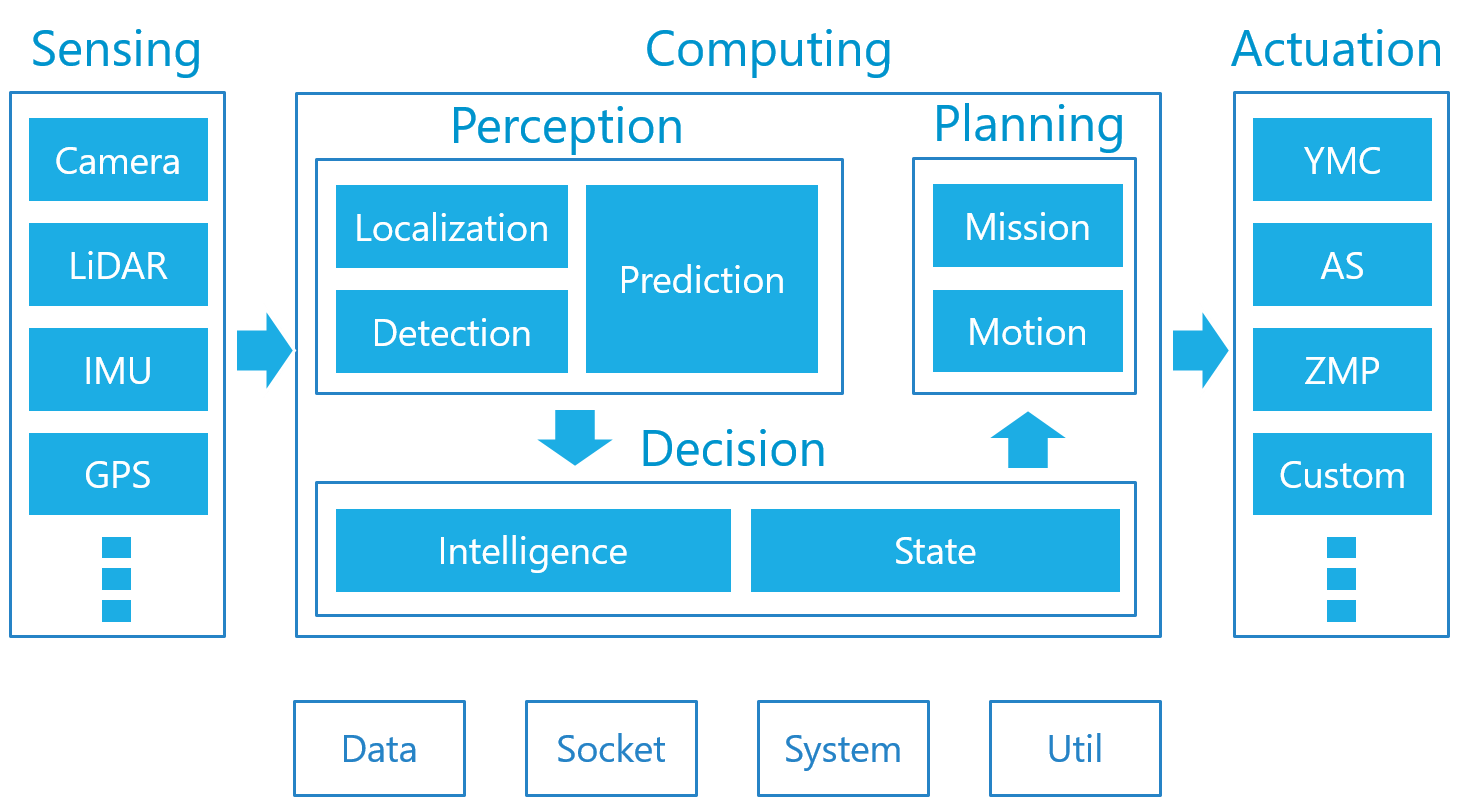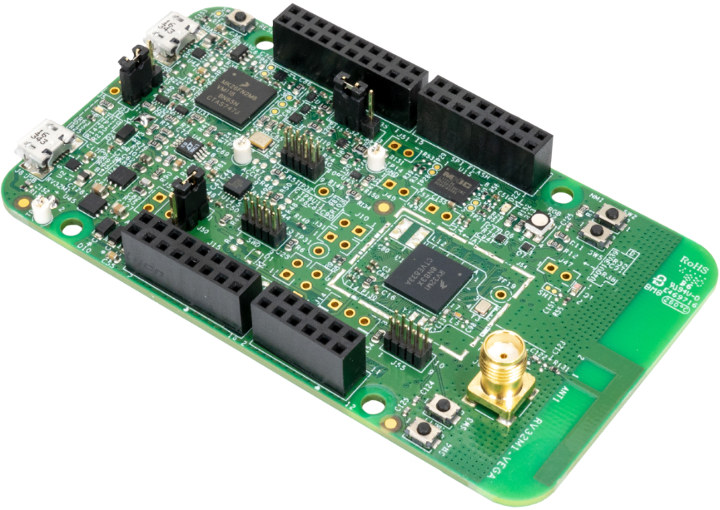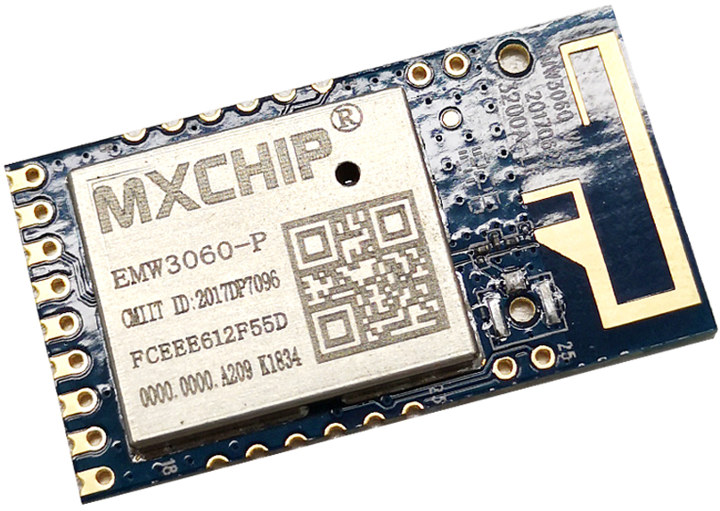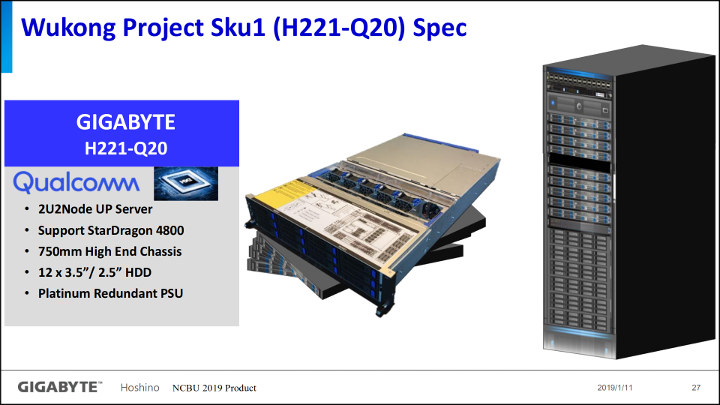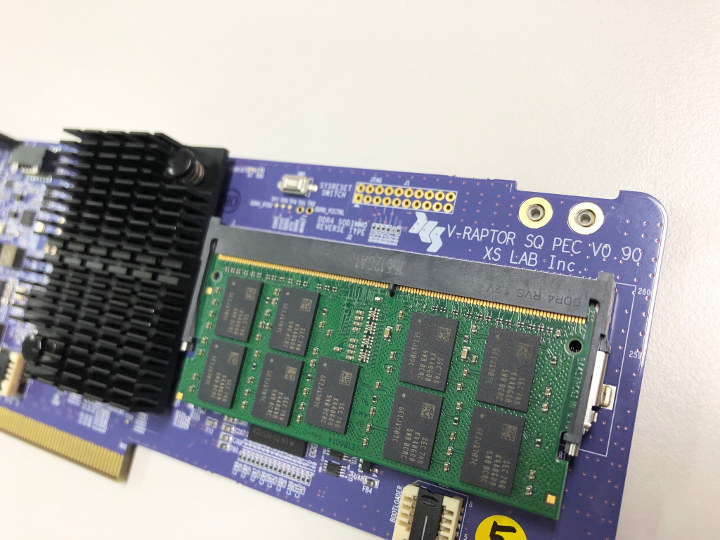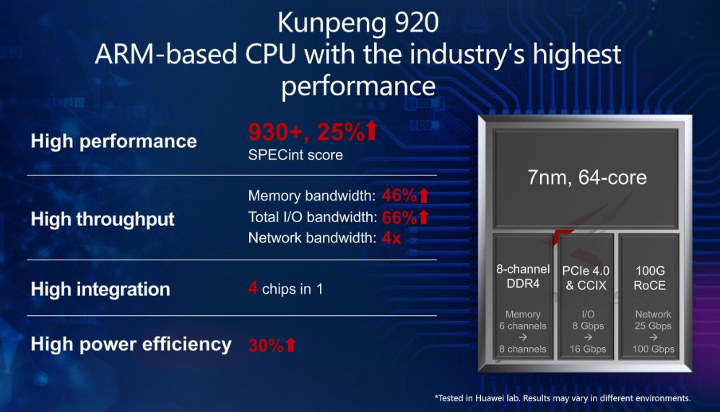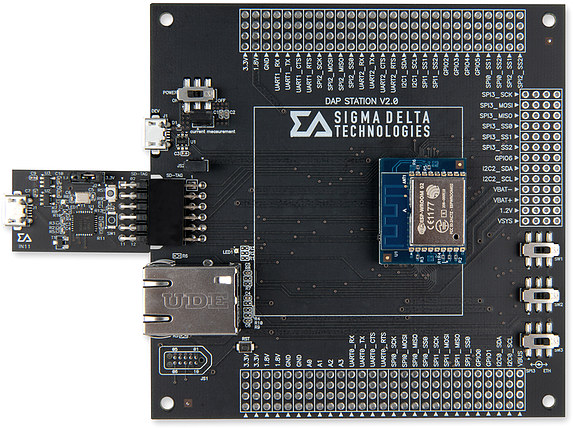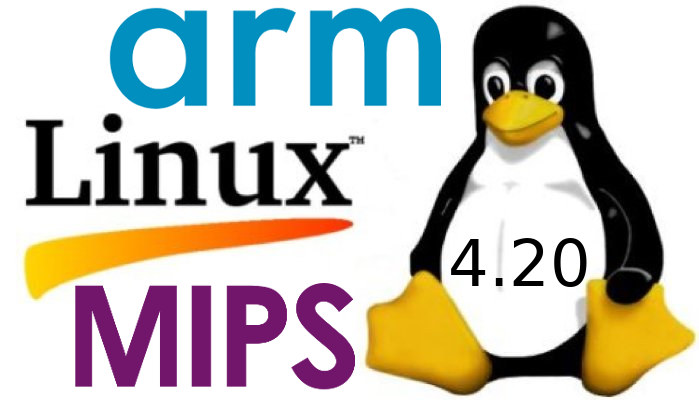All major automotive companies, and some technology companies are all working on autonomous driving with the ultimate goal of achieving level 5 autonomous driving meaning no human intervention is needed at any stage. Development will take some more time, and companies are now competing with closed source software and hardware. But as I browsed through Linaro Connect Bangkok 2019 schedule, I found out there’s an open source autonomous driving software called Autoware.AI. Several “Autoware” projects are managed by the newly founded Autoware Foundation, a non-profit organization created to develop a synergy between corporate development and academic research in order to provide access to autonomous driving technology for everyone: Autoware.AI is the first version built on ROS 1, and Linux, and has been developed as a research and development platform Autoware.auto is the second version built on ROS 2, and Linux, with a complete redesign. Autoware.IO is an interface project for Autoware […]
OpenISA VEGAboard Combines RISC-V and ARM Cortex-M Cores
OpenISA has launched an Arduino compatible RISC-V development called VEGAboard that features RV32M1 wireless microcontroller with a RISC-V RI5CY core, a RISC-V ZERO-RISCY core as well as Arm Cortex-M4F and Cortex-M0 cores, and a radio operating in the 2.36 GHz to 2.48 GHz range. An external NXP Kinetis K26 Arm Cortex-M4 MCU is added to the board for OpenSDA (Open-Standard Serial and Debug Adapter) debugging over a single USB cable. The board was offered for free, I’m just not sure when, but they are already out of stock. Hopefully, they’ll start selling the board soon enough. VEGAboard (RM32M1-VEGA) board key features and specifications: Ultra-low-power RV32M1 Wireless MCU supporting BLE, Generic FSK, and IEEE Std 802.15.4 (Thread) platforms IEEE Std. 802.15.4-2006 compliant transceiver supporting 250 kbps O-QPSK data in 5.0 MHz channels, and full spread-spectrum encoding and decoding Fully compliant Bluetooth v4.2 Low Energy (BLE) Reference design area with small-footprint, low-cost […]
MXCHIP EMW3060 WiFi IoT module sells for less than $2
Over the last few years, we’ve seen several Arm based WiFi IoT modules trying to compete with Tensilica based ESP8266 including Pine64 PADI IoT Stamp and Air602 WiFi IoT modules with similar functionalities and price (around $2) as the Espressif modules. I have not seen many projects with any of those Arm based wireless modules, likely because Espressif Systems software ecosystem is mature, and it’s hard to compete for new entrants. Nevertheless there’s a new Arm WiFi IoT module, not based on Cortex-M core, but instead, MXCHIP EMW3060 is equipped with an older ARM9 core, 256KB RAM, and 2MB flash, and sells for just $1.79 on Seeed Studio in single quantity. The price further drops to $1.55 per unit if you order 50 pieces or more. MXCHIP EMW3060 WiFi IoT module specifications: SoC ARM9 core clocked at 120 MHz System Memory – 256KB SRAM Storage – 2MB flash Connectivity – […]
Huaxintong StarDragon 4800 Server SoC is Based on Qualcomm Centriq 2400 Processor
Qualcomm started shipping samples of their Arm based Centriq 2400 server processors in 2016, before launching mass production the next year with three parts including Qualcomm Centriq 2460 48-core processor. Development seemed to go along nicely until Qualcomm allegedly decided to exit the server market in the middle of last year. The story got confusing when GIGABYTE still decided to launch their H221-Q20 server powered by Qualcomm Centriq 2400 processor last November, which would not make sense if Qualcomm is really existing the server market, and parts would not become unavailable after a short. But today, as I read the slides of GIGABYTE presentation at the HPC Asia workshop that took place on January 14-16, I realized Centriq 2460 is still alive but just changed owners… So the GIGABYTE H221-Q20 server is compatible with StarDragon 4800… What is that? StarDragon sounds familiar, a bit like Qualcomm Snapdragon. It turns out […]
V-Raptor is a 24-Core Arm Server based on SocioNext SC2A11 SoC
Socionext SC2A11 24-core Arm Cortex-A53 processor has gotten into more hardware recently. We recently showcased a demo of an upcoming Banana Pi 24-core Arm server, but they’ll be joined by South Korea based XSLAB which prepare to launch their own V-Raptor 24-core microserver in February 2019. The server is based on SC2A11 processor coupled with their own BMC (Baseboard Management Controller). A 24-core micro server node is shown below with SC2A11 processor covered by a black heatsink, as well as a RAM stick. As I understand it, one or several V-Raptor microserver can then be inserted into a PCIe slot of the mainboard which supports up to 32 nodes on 2U rack size, so that would be a total of 24 x 32 = 768 Arm Cortex A53 cores. The detailed specifications of the server are not shown yet on the almost empty company website. The company may also have made […]
Huawei Kunpeng 920 is a 7nm 64-core Armv8 Server Processor
We’ve seen several Armv8 processors for the datacenter launched in recent years from companies like Cavium – now part of Marvell – and Ampere. Another company now joins the fray with Huawei having just introduced their Kunpeng 920 64-core Armv8 processor manufactured with a 7nm process, and offering 8-channel DDR4 RAM, and fast interfaces such as 10GbE and PCIe 4.0. Kunpeng 920 features and specifications: CPU – 64x Armv8 cores clocked at up to 2.6 Ghz delivering a 930 SPECint score Memory I/F – 8x DDR4 @ 2933 MHz for 6 to 8 channels memory Storage – 16x SAS/SATA interfaces High Speed Interfaces – 40x PCIe 4.0 including 16 that can be used for CCIX (Cache Coherent Interconnect for Accelerators); 640 Gbps total bandwidth Networking – 2x 100G RoCE (RDMA over Converged Ethernet) Process – 7nm process The company customized their ARMv8 cores in order to improve performance by optimizing […]
SDTxArm Pelion Kit is a Modular IoT Devkit Designed for Arm Mbed Cloud Platform
South Korea based Sigma Delta Technologies’ SDTxArm Pelion Kit is a modular development kit comprised of a baseboard, as well as CPU and interface modules that is specifically designed to work with Arm Pelion cloud based device management service and Mbed OS for wearables and IoT applications. DAP (Debug Access Port) Station Ver.2 baseboard key features and specifications: USB – 1x micro USB 2.0 port Expansion I/Os via rows of through-holes 3x UART Interfaces 4x SPI Interfaces 3x I²C Interfaces 7x GPIO 4x analog inputs Debugging / Programming 1x TC2050 tag connection designed to allow programming without purchasing additional Interface if the user already has an appropriate Interface Module from other companies. I assume this is related to Tag Connect TC2050-IDC. 1x SD-TAG with JTAG/SWD signals Power Supply – 5V via micro USB port The DAP station takes an SDT Board (i.e. CPU board), as well as an interface board […]
Linux 4.20 Release – Main Changes, Arm and MIPS Architectures
After Greg K-H handling Linux 4.19 release, Linus Torvalds is back at the helm, and released Linux 4.20 just before Christmas: Let’s face it, last week wasn’t quite as quiet as I would have hoped for, but there really doesn’t seem to be any point to delay 4.20 because everybody is already taking a break. And it’s not like there are any known issues, it’s just that the shortlog below is a bit longer than I would have wished for. Nothing screams “oh, that’s scary”, though. And as part of the “everybody is already taking a break”, I can happily report that I already have quite a few early pull requests in my inbox. I encouraged people to get it over and done with, so that people can just relax over the year-end holidays. In fact, I probably won’t start pulling for a couple of days, but otherwise let’s just […]


